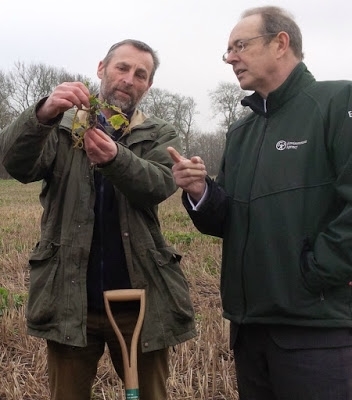By Prof. Chris Stoate, Allerton Project Head of Research
We seem to be living in a world dominated by those who bluster best. It is time to be concerned when facts can be dismissed as less important than dogma. Ideology is important, even when driven by emotion, but it must be consistent with whatever scientific evidence is available if it is to contribute to our collective and sustained wellbeing.
The statements we make to inform policy and practice are based on independent scientific research carried out, either by us or by others, even when the results of that research are not totally aligned with what we may have expected or hoped for. We adapt the way we think according to our findings.
Most recently, evidence from our published research over the years was used to support the case for targeted control of crows and magpies for the conservation of certain predation-prone species such as spotted flycatcher and song thrush. Many years ago, we investigated and tested the potential of wild bird seed crops which subsequently became adopted nationally as a popular Stewardship option. We provided evidence for the role of supplementary winter feeding as a means of increasing songbird survival and breeding numbers.

Our research continues to inform decisions about both national policy and on-farm practice. We highlighted the impact that sewage treatment works and septic tanks have on water quality where the blame had previously been laid wholly at the door of agriculture. We discovered that detention ponds designed to reduce sediment movement to streams rarely did so on our clay soils, although they were fine on lighter land. We identified environmental benefits of cover crops and direct drilling, but also the challenges associated with them on our soil type, and sometimes the economic cost.
Where are the people in all this science? We recognise that, amongst the farmers, agronomists, conservationists, policy makers and regulators we work with, there are differing knowledge cultures, between and within these groups. That is a subject I touched on in a recent journal paper on our participatory research with farmers and others. We previously adopted a social learning approach to improve our collective local community knowledge of land use and environmental issues in the Eye Brook catchment, and we have studied how farmers learn through their practical experience of Stewardship schemes. Such integration of research disciplines is important for a comprehensive understanding of often complex issues.
We are learning new things all the time. Our perceptions of truth evolve. But our statements are based on our understanding of the situation following research, not before it, and certainly not in denial of it. It is at the heart of all we do. No bluster.